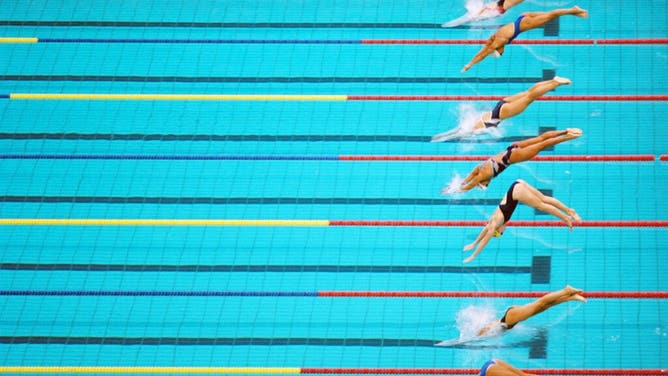Swimming World Cup’s Open Races - That Allow Transgender Athletes - Cancelled After No One Entered
The Swimming World Cup's "open" races at an event in Berlin — designed to give transgender swimmers a place to compete — have been canceled.
The reason? Well, no one showed up to compete.
World Aquatics announced plans to roll out the open category last year after outlawing transgender women (read: biological men) from competing against females. According to Daily Mail, the open category was set to debut at the event in Berlin in the form of 50 and 100-meter races for every stroke.
It certainly seemed like a way to allow transgender athletes to compete while maintaining fairness in women's races.
But, alas, no one wanted to be part of that.
"Following the close of registration for the open category competitions, World Aquatics can confirm that no entries have been received for the Open Category events," World Aquatics said in a statement.
The "pioneering pilot project" as it was called, was an abject failure when no one showed up.
Meaning, it pioneered about as well as the Donner Party.
However, if you thought this would be the end of the open class. Despite the empty pool, World Aquatics hopes to keep pushing for more open events in the future.

The open category was designed to protect women's sports but still has some inherent competitive imbalances. (Getty Images)
World Aquatics Plans To Continue With Open Category For Transgender Swimmers
"The World Aquatics open category working group will continue its work and engagement with the aquatics community on open category events. Even if there is no current demand at the elite level, the working group is planning to look at the possibility of including open category races at masters events in the future," the organization said.
You'd think that if anyone wanted to be involved, they'd really want in on the inaugural event. It kind of goes to show that trans swimmers competing in women's events was always more about just that -wanting to compete against women. Otherwise, at least a few swimmers probably would have flown to Berlin.
I have no idea what makes them think if the inaugural competition drew approximately 0.00 athletes, the next one would see a gain. Maybe they have their reasons.
It's also interesting to note that the "open category" approach has inherent flaws too. It's good in that it gives transgender athletes a place to compete while protecting women's sports. However, the competitive balance would still be way off (if there were swimmers). It would still feature biological men competing against biological females with the men having an advantage.
We've seen attempts at this sort of thing, even in sports with contact sometimes with disastrous results. Last year, an event for transgender hockey players included a biological male accidentally injuring a biological female. That happened when they made contact during an otherwise routine play.
Maybe these open categories will pick up steam. However, after the first event laid an egg, it wouldn't be surprising to see the others follow suit.
Follow on X: @Matt_Reigle